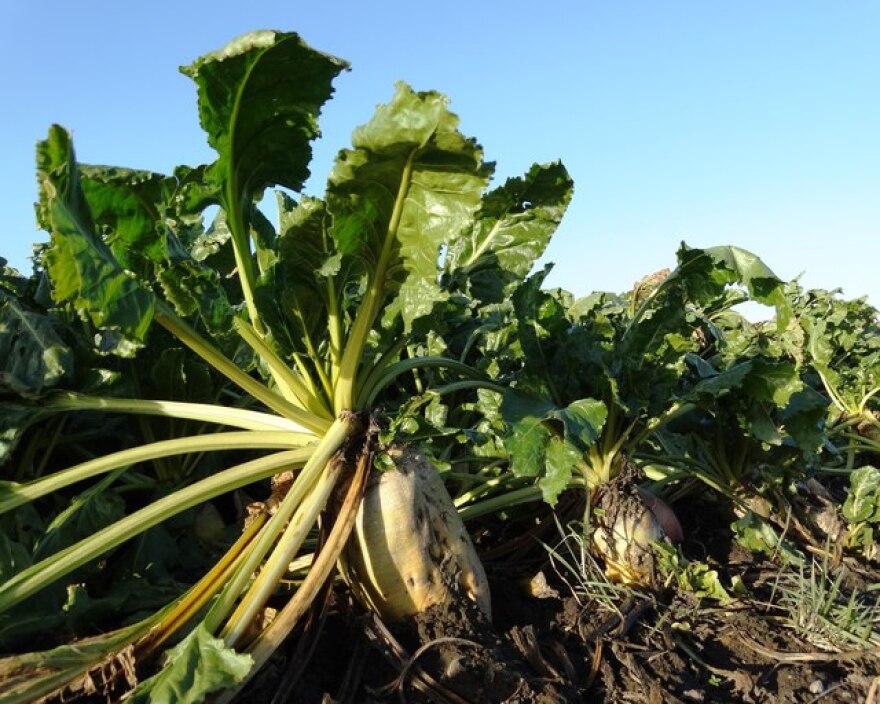Salt gets all the credit for de-icing our roads during wintry weather, but it turns out it’s not a solo operation. The Kansas City office of the Missouri Department of Transportation says beet juice also plays an important part in melting that troublesome ice.
We’ll get to what the beet juice actually does — but first let’s find out where it comes from.
This particular juice doesn’t come from the same type of beet that you eat, that vegetable is called a beetroot. Our ice-defying beet juice comes from a sugar beet.
Sugar beets are used primarily for making sugar (surprise, surprise). As the sugar beet is fermented to extract its sweet crystals, the byproduct is beet juice. This beet juice helps salt do its job.
You see, when it’s 30 degrees outside, one pound of salt will melt 46.3 pounds of ice. And when it’s zero degrees outside, a pound of salt will melt just 3.7 pounds of ice. So as it gets colder, road crews add helpers to the mixture to make the ice melt faster.

At about 25 degrees, beet juice gets added. This mixture is 20 percent beet juice and 80 percent salt brine and it helps melt the ice faster up to about 5 degrees. At that point, calcium chloride is added to the mixture which is helpful to about -10 degrees, at which point everyone should just be at home curled up in bed anyway, right?
Beet juice is less corrosive than salt and it costs about the same as calcium chloride at $1.70-$1.85 per gallon.
In the United States, sugar beets are grown all over the Midwest and west including Nebraska and Minnesota.
Across the world, sugar beets account for 20 percent of total sugar production. And in some European countries, beet sugar is used to make alcohol.
You won’t find much sugar beet alcohol around here, unless you know a home distiller who’s willing to experiment. And if you do, let me know. Because there's still 52 days left of winter.

